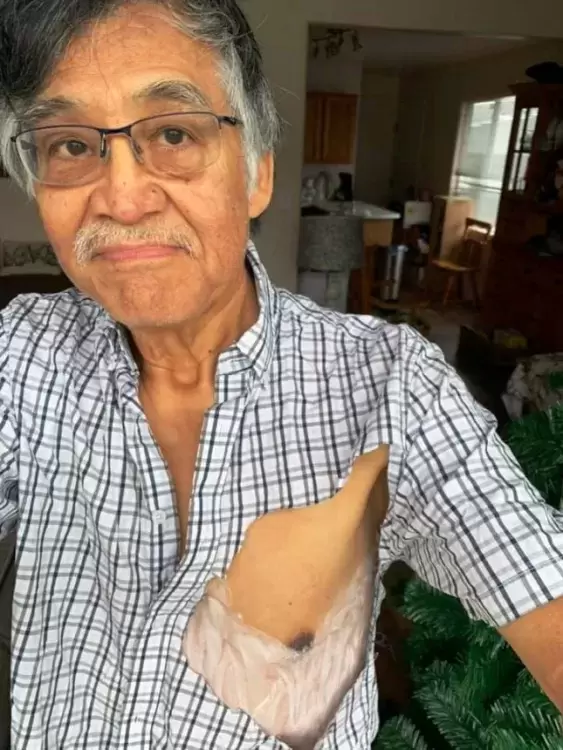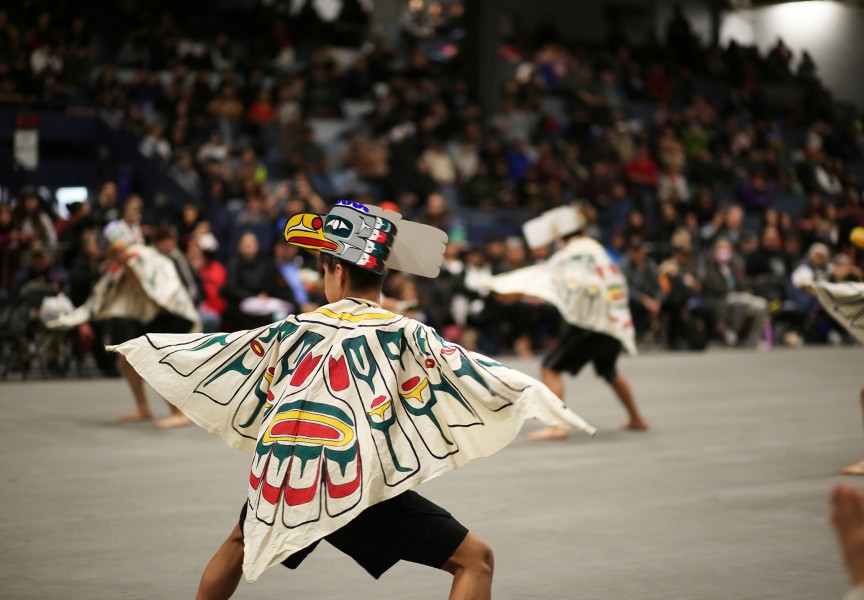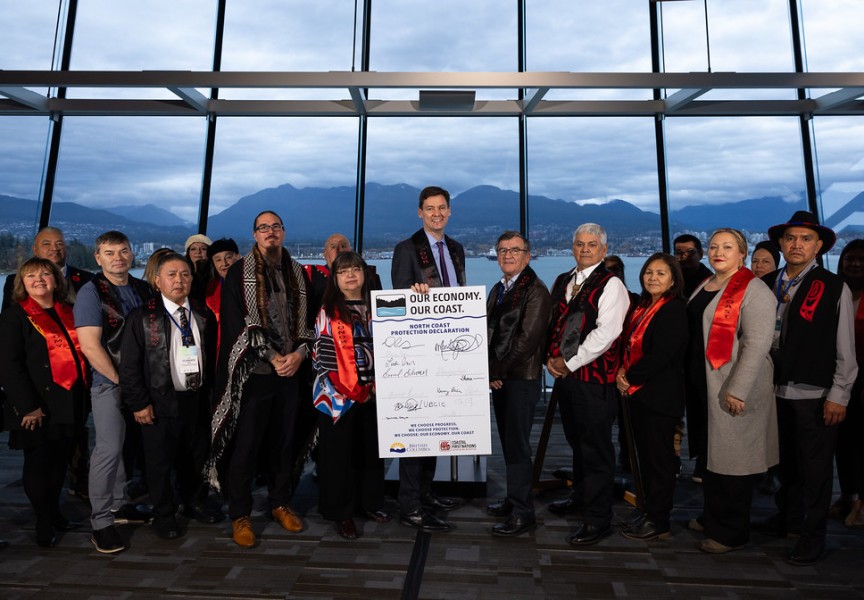The First Nations Health Authority has announced that status First Nations clients between the ages of 65 and 69 may now be reimbursed for the cost of Shingrix, the vaccine that protects against shingles.
The First Nations Health Authority (FNHA) is the agency responsible for planning, management, service delivery and funding of health programs, in partnership with First Nations communities in B.C. Taking over First Nations programs from Health Canada, FNHA is actively updating its schedule of medications available to B.C.’s Aboriginal populations on an ongoing basis.
According to Public Health Canada, shingles is an infection that shows up as a painful skin rash with blisters, usually on part of one side of the body, often in a strip.
"Shingles can be extremely painful and it is preventable,” said Dr. Evan Adams, the FNHA's Chief Medical Officer. “When it happens, treatment requires immediate medical care and antiviral drugs. Many First Nations clients live in remote areas where it's difficult to get this quick treatment."
Ahousaht elder Wally Samuel says this is good news for Nuu-chah-nulth seniors. The Port Alberni resident suffered from a bout of shingles over the winter. The rash was so sensitive he was forced to cut some of his shirts to keep the fabric from irritating his skin.
“The first two months was really hard but over the next two months it started slowly healing,” he told Ha-Shilth-Sa.
Shingles is the name commonly used for the herpes zoster virus. People get shingles when varicella zoster virus, the one that causes chicken pox, is reactivated in their body.
“The varicella zoster virus doesn't leave the body, even after a person has recovered from chicken pox. It can flare up again, causing shingles, often many years after a person has had chicken pox,” the Canadian government website says.
The virus tends to reactivate when a person's immune system is weakened because of another health problem.
Samuel told Ha-Shilth-Sa he would get the vaccine if he is cleared to do so by his family doctor.
“I have to check with my doctor because of other health conditions,” he said.
Samuel pointed out that many people suffer from shingles.
“Lots of people have had it or know someone that has had shingles,” he added.
According to the Centre for Disease Control (CDC), shingles vaccination is the only way to protect against the illness and postherpetic neuralgia (PHN), the most common complication from shingles.
The CDC recommends that healthy adults 50 years and older get two doses of the shingles vaccine called Shingrix, separated by 2 to 6 months, to prevent shingles.
Shingrix provides strong protection against shingles and PHN. Two doses of Shingrix are more than 90 per cent effective at preventing shingles and PHN. Protection stays above 85 per cent for at least the first four years after you get vaccinated.
Shingrix is recommended for healthy adults ages 50 and over, even if they have had shingles in the past or, if they don’t know if they’ve ever had chicken pox. Your doctor or pharmacist can give you Shingrix as a shot in your upper arm.
Prior to May 2019, the Shingrix vaccine was not covered by the FNHA and the cost of each dose, $300, was paid by the patient. Full vaccination would cost elders $600 after the recommended second dose.
In late May 2019 FNHA announced that it is now providing reimbursement for the Shingrix® shingles vaccine, making it the first health jurisdiction in the country to do so.
This means that any status First Nations elder in the province ages 65-69 who received the Shingrix vaccine on or after Oct. 1, 2018 is eligible for reimbursement if they can provide a valid receipt. Clients are required to submit the official prescription or pharmacy receipt in order to be reimbursed; a till receipt is not sufficient.
“Effective immediately, First Nations Health Benefits will accept client reimbursement requests (get the FNHA reimbursement form here) for vaccinations with the Shingrix® vaccine received on or after Oct. 1, 2018 by First Nations clients age 65 to 69,” says the FNHA website.
Patients outside of this age group may be eligible for coverage based upon the recommendation of the family doctor in the form of written advice that this vaccine is necessary for the patient.
Once the FNHA has fully implemented coverage within BC Pharmacare, the doctor or pharmacist can be billed directly through the B.C. First Nations Pharmacare Plan W.
For more information contact NTC Health Benefits Program Coordinator Robert Cluett at Robert.Cluett@nuuchahnulth.org, call toll free at 1-888-407-4888 or at the NTC at 250-724-5757. The First Nations Health Authority can be reached at 1-855-550-5454.







